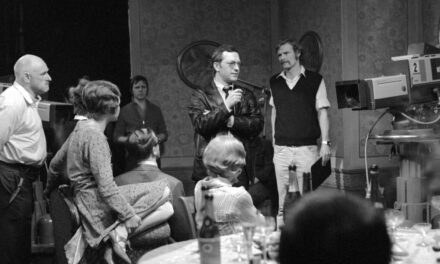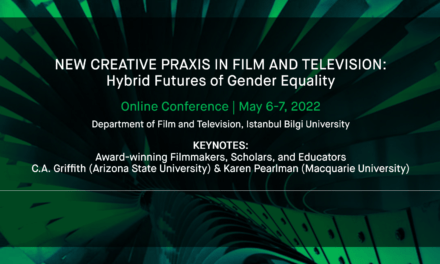Global Perspectives on Soccer and the Media and Entertainment Industry
Floribert Patrick C. Endong (Editor)
University of Dschang, Cameroon
Introduction
Over the years, the political significance of football in the world has tremendously grown. This is so irrespective of the fact that national and international footballing authorities – notably the FIFA and the African Football Confederation (CAF) – have most often claimed to be apolitical. In countries across the world, footballing bodies, clubs and supporters have tended to lean left or right; some have been key voices in the promotion of religious identities and ethno-centrism. These stakeholders of the football industry have also sometimes represented significant forces in the secessionist debate in their respective countries. According to Kassimeris (2023), football has even been used by some governments to project fascist and communist ideologies in their territories, as well as to enable surveillance, discrimination and human rights in specific countries. This is true to the fact that authoritarian leaders such as Germany’s Hitler, Spain’s Franco and Italy’s Mussolini deployed football in the 1930 and early 40s to respectively project Nazism, communism and fascism in their respective countries.
Big sporting events such the FIFA World Cup tournament have similarly been highly politicised. The World Cup in particular has been a site of political protests that have sometimes resulted in boycotts and scandals. In the 2022 edition of the World Cup for instance, the German players covered their mouths in a team photo in protest of FIFA’s injunction against the pro-LGBTQ+ armband. This armband was worn by the team in their previous match. The FIFA’s injunction followed from its apolitical mantra while the German players’ mouth covering gesture was read as a bold statement of support to the LGBTQ communities, and a subtle criticism against FIFA’s perceived non-progressive attitude towards gay rights. The German team’s criticism is just one out of a multitude of forms of political activism in that edition of the FIFA World Cup. This is given the fact that, the FIFA was that same year criticised over its decision to grant Qatar the 2022 World Cup, irrespective of the country’s gloomy human rights record. The two incidents mentioned above show how football and politics can be interwoven.
Similarly in the African region, football has often fuelled issues of xenophobic movements, inter-country rivalries, diplomatic incidents, hegemonic control and tribalism among others, that have remained grossly under studied. In some other contexts, the collective sport has been inscribed in such issues as protest, military propaganda, political propaganda, political symbols and modes of masculinity. In line with this, Power et al (2020) observe that in spite of the popular old adage that says sport and politics should not mix, football – like the other sports – has always been political. Clubs, players and fans are in complex ways, enmeshed in politics. While clubs are in many cases associated with ethno-national, religious communities and political ideologies or parties, football supporters are often involved in movements against or for political ideals/causes: anti-racism, migration and human rights protection among others (Abdullah, 2022; Carr et al 2021; Benedikter & Wojtaszyn, 2020).
Although a good number of scholars have researched the interaction of football with politics, very little scholarly attention has particularly been given to how this interaction seriously inspires media and artistic/cultural production in the world. In order to fill this gap in knowledge, the present book seeks to explore the interaction between political football and cultural production in the fields of mass media and the entertainment/creative industries.
Football is a great source of inspiration to storytellers and artists. This truism is clearly illustrated by the huge musical production which always accompanies the organisation of special international football competitions such as the FIFA World Cup and the African Cup of Nations (AFCON). In the occasion of these football events, big music competitions are usually organised to collect the official anthems for the competitions. The organisation of these football competitions is also an opportunity or excuse for football fans and professional artistes to compose and publish patriotic songs in support of their favourite teams or to document particular issues around the football competitions. Also, global and regional football competitions always attract the attention of media outlets, artistes and cinema professionals across the world. TV commercials related to the competitions usually tap immensely into football symbolism and social/popular imaginaries around football as a culture.
As a sportive phenomenon which is inextricably linked to the media and artistic production, football can take the form of actuality, drama, animation or computer game among others. For a number of authors, football even qualifies as one of the arts, given that it supplies audiences’ need for stories (Brassel, 2022; Maguire 1993). The political dimension of football even accentuates this inspiring nature of the game. Indeed, such a dimension makes football competitions, clubs, teams and fans to be regarded as very important raw materials for media and artistic production. In tandem with this, political issues around football have always been considered news-worthy events. These issues have also represented hot topics for debate in the art world. How the media usually covers or influences these political issues has not really attracted a considerable scholarly attention. Also, how artists in the domains of cinema, music, sit-com comedy and dance draw on these political issues to construct their works is still largely under-studied.
Objectives
This book is aimed at providing different perspectives on the interactions between political football and global media and entertainment industries. These perspectives may be historical, religious, socio-cultural and political among others. The book equally seeks to explore representations of football politics in diverse media notably cinema, television, games, magazines, comics, photojournalism, advertising and online platforms among others.
Target Audience
The target audience of this book will consist of students, scholars, media practitioners, artistes, policy makers, international relation experts, politicians and other professionals in representation research.
Recommended Topics
- Football politics and media production/programming
- Football politics and social media-based political activism
- Football politics, xenophobia and the media
- Football politics, hate speech and the media
- Football politics, racism and the media
- Football politics and music
- Football politics, Football arts and the media
- Football politics, religion and entertainment
- Football politics and TV commercials
- Football politics, patriotism and advertising
- Football politics and televised dance activism
- Football politics, ethnocentrism and dance challenges
- Football politics and sit-coms
- Representation of football politics in films and music
- Football politics, fan culture and the media
- Football politics, football art and the media
- Audiences’ reception of media representation of football politics
Submission Procedure
Researchers and practitioners are invited to submit on or before March 17, 2024, a chapter proposal of 1,000 to 2,000 words clearly explaining the mission and concerns of his or her proposed chapter. Authors will be notified by March 31, 2024 about the status of their proposals and sent chapter guidelines. Full chapters are expected to be submitted by June 9, 2024, and all interested authors must consult the guidelines for manuscript submissions prior to submission. All submitted chapters will be reviewed on a double-blind review basis. Contributors may also be requested to serve as reviewers for this project. Note: There are no submission or acceptance fees for manuscripts submitted to this book publication, Networked Business Models in the Circular Economy. All manuscripts are accepted based on a double-blind peer review editorial process. All proposals should be submitted through the eEditorial Discovery®TM online submission manager.
Submit your proposal online at https://igi-global.com/publish/call-for-papers/call-details/7277
Note: There are no submission or acceptance fees for manuscripts submitted to this book publication.
Important Dates
March 17, 2024: Proposal Submission Deadline
March 31, 2024: Notification of Acceptance
June 9, 2024: Full Chapter Submission
July 21, 2024: Review Results Returned
August 18, 2024: Final Acceptance Notification
August 25, 2024: Final Chapter Submission
References
Abdullah, A. A. (2022). Football in the Middle East: State, society and the beautiful game. New York: Oxford University Press
Alt J. (1983). Sport and cultural reification: From ritual to mass consumption. Theory, Culture and Society, 1(3), 93-107.
Benedikter, R. & Wojtaszyn, D. (2020). Football politics in central Europe and Eastern Europe: A study on the geopolitical area’s tribal, imaginal and contextual politics. London: Lexington Research in Sports.
Brassel, A. (2022). Football murals. A celebration of soccer’s greatest street art. London: Bloomsbury.
Carr, J. et al (2021). Football, politics and identity, London: Routledge.
Kassimeris, C. (2023). The politics of football. London: Routledge.
Maguire, J. (1993). The media-sport production complex: The case of American football in western European societies. European Journal of Communication, 6(3), 17-31.
Power J. M. et al (2020). Football and politics: The politics of football. Managing Sport and Leisure, 25(2), 1-5.





